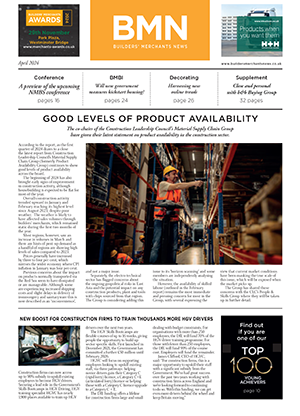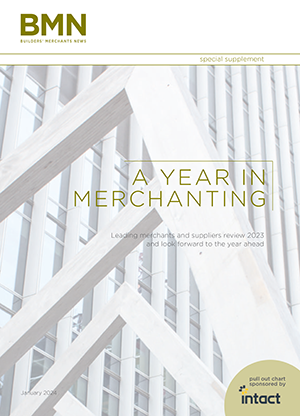A modern Industrial Strategy that showcases the construction industry, based on a clearly-defined, well-articulated mission to give it purpose, drive and direction, is the message to Ministers from the Builders Merchants Federation (BMF).
The BMF was responding to a consultation that closed the day before the General Election announcement. The Federation welcomed the government’s enthusiasm for a proper Industry Strategy and wants it to be a long-term partnership between government and business.
But the government should be clearer in what it means by industrial strategy because often the word ‘industry’ is used to loosely describe not just manufacturing. Politicians would do well to remember that industries like construction and housebuilding cannot function properly without the active support of the building materials’ supply chain that the BMF represents.
John Newcomb, managing director of the BMF, said: “The Prime Minister’s decision to establish a new department with the words Industrial Strategy in its name gives a clear signal as to her intentions. It confirms the approach is to carry on with the work done begun under the coalition government, and continued by the Conservatives, of a blend of horizontal policies, regional devolution and sector deals.
“This is not without a degree of risk because it perpetuates the advantage that certain companies and industries have in access to Ministers. We believe it is better to pursue far-reaching action to support clearly-defined missions that affect many businesses, large and small, like merchants.”
Mr Newcomb said the BMF wants parity of esteem between academic education and vocational training and skills. He said: “Without proper, structured careers advice and guidance, the concern is that young people are channelled into higher education that may prove to be the wrong choice for them.
“Contradictory funding announcements by ministers only serve to perpetuate this imbalance. The BMF has spotted that the new Institutes of Technology are due to receive £170m, which is less that the £240m earmarked for the expansion of grammar schools.”
John Newcomb added that official figures show the West Midlands has a shortage of skilled workers. “The proportion of highly-skilled people in the region is about 15% below the England average - and one in every eight people in the West Midlands have no qualifications,” he concluded.








